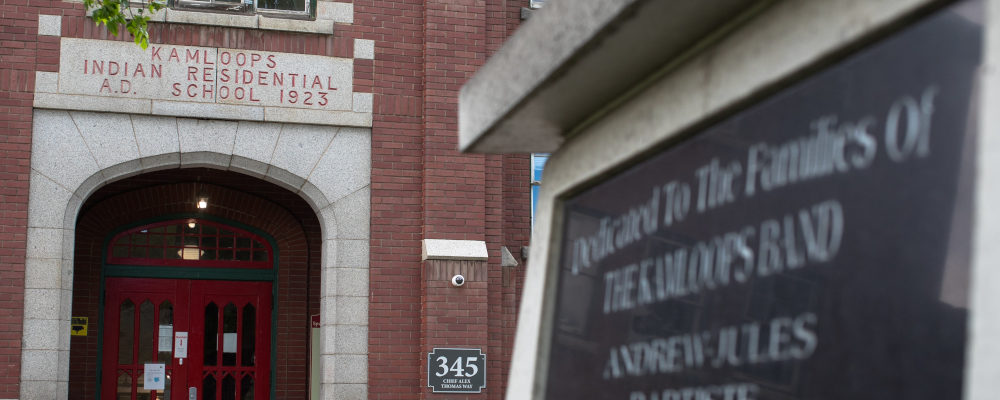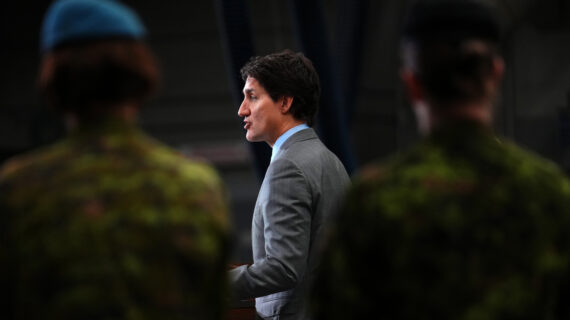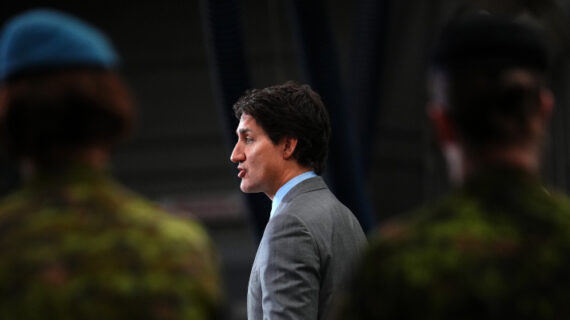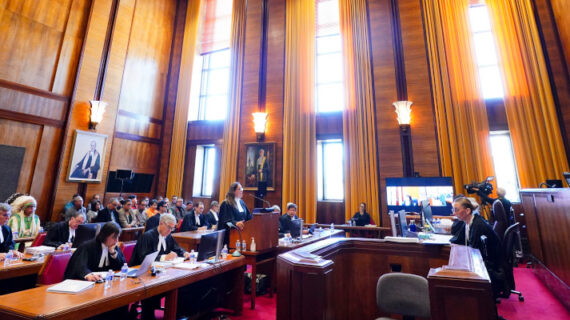Last week ended with the sad and tragic news that the Tk’emlups te Secwépemc First Nation in British Columbia had located the buried remains of 215 children who were students at the Kamloops Indian Residential School.
The school, which operated from 1890 to 1969, was one of the country’s largest, with peak enrolment of 500 students in 1950. The on-site discovery of children’s remains, some of whom are believed to have been as young as three years old, is a stark reminder of the appalling legacy of residential schools which often resulted in abuse, violence and even death.
But even if these schools hadn’t been home to such emotional, physical and sexual abuse, they would have still been wrong as an intellectual and moral matter. The basic idea to remove and isolate children from the influence of their families in order to “get rid of the Indian problem” was wicked and bad.
MORE SIGNAL. LESS NOISE. THE HUB NEWSLETTER.
One can nevertheless occasionally find efforts on social media and elsewhere to rationalize or bring nuance to discussions of the residential school system. There are of course instances where students weren’t subjected to abuse or violence or even individual students who may have conflicted views about their own experiences. It’s often striking, for instance, that a lot of former students continue to live out their religious faith, notwithstanding the extent to which religious institutions were culpable in some of the most egregious cases of systemic abuse.
Yet, while one might understand the impulse to bring nuance to our historical understanding, these efforts overlook the original sin of the whole residential school system: there was a systematic, race-based government policy to remove children from their families and educate them in some form of universalized conception of identity and citizenship.
For any cases where the experience might have been somewhat positive for individual students, they cannot make up for the fact that the basic idea was inherently illiberal and a statist attack on individual rights and the institution of the family. Any historical discussion or debate that doesn’t start from this fundamental basis is missing the point.
Former Prime Minister Stephen Harper’s formal apology to residential school students, which was delivered thirteen years ago next month, was predicated on this basic insight. It came from two core parts of his own identity: first, as a philosophical conservative who believes in the inviolability of individuals and families from the overreach of state action; and second, as a father who was understandably moved by accounts of children forcibly separated from their parents in the name of assimilationist ends. As he said in his apology: “the Government of Canada now recognizes that it was wrong to forcibly remove children from their homes and we apologize for having done this.”
There’s nothing conservative about the residential school system.
It’s particularly odd, then, when one hears conservatives attempting to explain away aspects of residential schools. Let me be clear: there’s nothing conservative about the residential school system. There’s nothing conservative about a systematic policy to use the coercive powers of the state to break up families and force children into state-mandated schools along racialized lines.
In fact, one could argue that, to the extent it finds any intellectual basis, it would be more in the zeal of late nineteenth/early twentieth century progressivism which was marked by a utopian scientism that often combined faith in technocracy with forms of genetic racism. Residential schools were, in effect, a tragic expression of the worst excesses of big government collectivism run amuck.
Conservatives should therefore be the most vocal opponents of the residential school system and the underlying ideas that led to its existence. This includes, by the way, reckoning with the role of churches in perpetuating the system.
Progressives must similarly grapple with how their ideas and impulses could manifest themselves in such a wicked and bad system. If I may say in the spirit of sincerity and goodwill, it seems like there can be a lack of introspection on the Canadian Left about these questions. Changing building names or removing statues or even being an ally to Indigenous peoples doesn’t quite address the role that collectivist ideas played in undergirding the whole tragic episode.
As importantly, though, both sides of our political divide need to recommit themselves to helping Indigenous families rebuild from the lost generation of this illiberal experiment. Census data tells us its legacy persists in the form of less stable families, more childhood trauma, and broader community and household challenges.
Consider, for instance, that Indigenous adults are less likely to be married than non-Indigenous Canadians, belong to much higher rates of lone-parent families and are much more likely to be part of complex stepfamily arrangements. Similarly Indigenous children are more likely to live with grandparents without parents present, much more likely to be part of the foster care system and generally live in far higher rates of poverty.
These troubling statistics reflect the recognition in Harper’s apology that “[residential schools] undermined the ability of many to adequately parent their own children and sowed the seeds for generations to follow.” The risk, of course, is that we condemn yet another generation of Indigenous children to lives of diminished expectations and opportunity. That would be tragic for them and represent what has been described as “an ongoing stain on our country.”
Last week’s awful news from British Columbia is a reminder of the shameful origins of these present-day challenges for Indigenous families and the work that must be done to reckon with the past and chart a better future.




